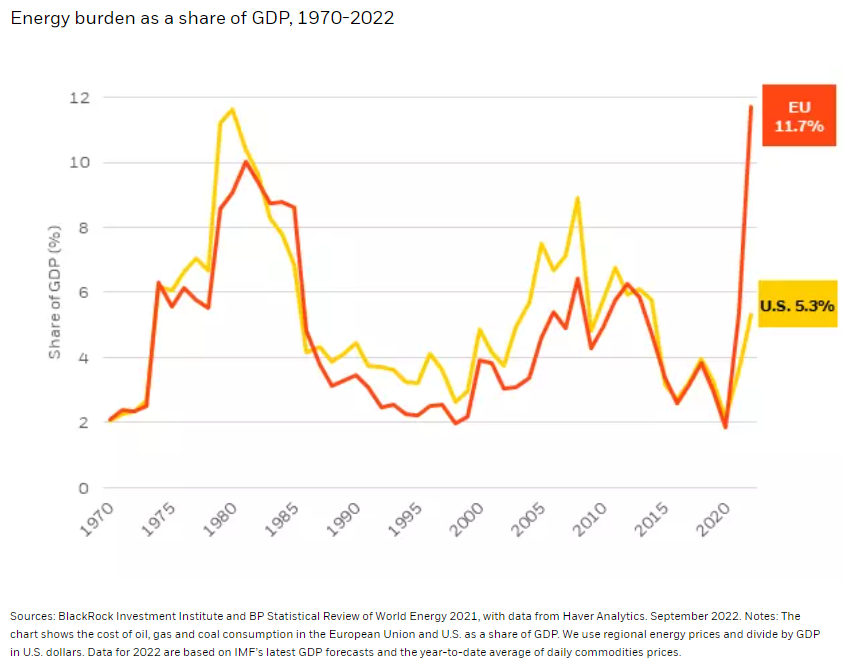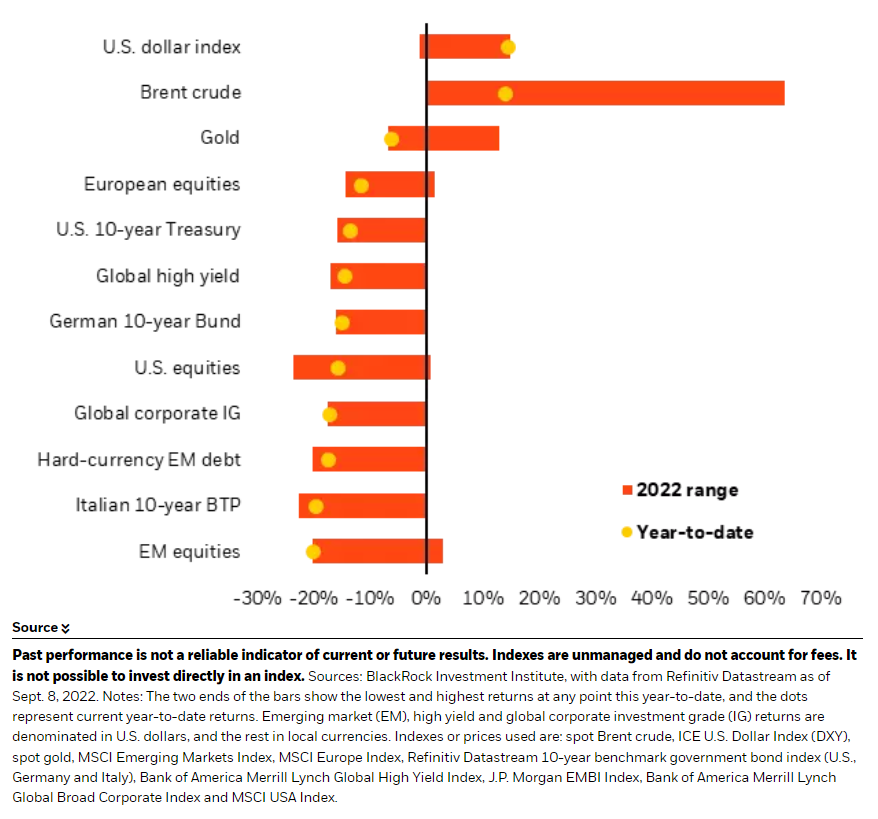Successful investing requires a rare ability to overcome one’s own psychological weaknesses–but you have to identify them first.
Successful investing is hard, but it doesn’t require genius. In fact, Warren Buffett asserted that it’s not so much raw brain power you need, but temperament “to control the urges that get other people into trouble in investing.”
As much as anything else, successful investing requires something perhaps even more rare: the ability to identify and overcome one’s own psychological weaknesses.
Over the past several decades, psychology has permeated our culture in many ways. In more recent times, its influences have taken hold in the field of behavioral finance, spawning an array of academic papers and learned tomes that attempt to explain why people make financial decisions that are contrary to their own interests.
Experts in the field of behavioral finance have a lot to offer in terms of understanding psychology and the behaviors of investors, particularly the mistakes that they make. Much of the field attempts to extrapolate larger, macro trends of influence, such as how human behavior might move the market. In this article, we’d prefer to focus on how the insights from the field of behavioral finance can benefit individual investors. Primarily, we’re interested in how we can learn to spot and correct investing mistakes in order to yield greater profits.
Following are 10 of the biggest psychological pitfalls.
1. Overconfidence
Overconfidence refers to our boundless ability as human beings to think that we’re smarter or more capable than we really are. It’s what leads 82% of people to say that they are in the top 30% of safe drivers, for example. Moreover, when people say that they’re 90% sure of something, studies show that they’re right only about 70% of the time. Such optimism isn’t always bad. Certainly we’d have a difficult time dealing with life’s many setbacks if we were die-hard pessimists.
However, overconfidence hurts us as investors when we believe that we’re better able to spot the next Amazon.com (AMZN) than another investor is. Odds are, we’re not. (Nothing personal.)
Studies show that overconfident investors trade more rapidly because they think they know more than the person on the other side of the trade. Trading rapidly costs plenty, and rarely rewards the effort. We’ll repeat yet again that trading costs in the form of commissions, taxes, and losses on the bid-ask spread have been shown to be a serious damper on annualized returns. These frictional costs will always drag returns down.
One of the things that drives rapid trading, in addition to overconfidence in our abilities, is the illusion of control. Greater participation in our investments can make us feel more in control of our finances, but there is a degree to which too much involvement can be detrimental, as studies of rapid trading have demonstrated.
2. Selective Memory
Another danger that overconfident behavior might lead to is selective memory. Few of us want to remember a painful event or experience in the past, particularly one that was of our own doing. In terms of investments, we certainly don’t want to remember those stock calls that we missed much less those that proved to be mistakes that ended in losses.
The more confident we are, the more such memories threaten our self-image. How can we be such good investors if we made those mistakes in the past? Instead of remembering the past accurately, in fact, we will remember it selectively so that it suits our needs and preserves our self-image.
Incorporating information in this way is a form of correcting for cognitive dissonance, a well-known theory in psychology. Cognitive dissonance posits that we are uncomfortable holding two seemingly disparate ideas, opinions, beliefs, attitudes, or in this case, behaviors, at once, and our psyche will somehow need to correct for this.
Correcting for a poor investment choice of the past, particularly if we see ourselves as skilled traders now, warrants selectively adjusting our memory of that poor investment choice. “Perhaps it really wasn’t such a bad decision selling that stock?” Or, “Perhaps we didn’t lose as much money as we thought?” Over time our memory of the event will likely not be accurate but will be well integrated into a whole picture of how we need to see ourselves.
Another type of selective memory is representativeness, which is a mental shortcut that causes us to give too much weight to recent evidence–such as short-term performance numbers–and too little weight to the evidence from the more distant past. As a result, we’ll give too little weight to the real odds of an event happening.
3. Self-Handicapping
Researchers have also observed a behavior that could be considered the opposite of overconfidence. Self-handicapping bias occurs when we try to explain any possible future poor performance with a reason that may or may not be true.
An example of self-handicapping is when we say we’re not feeling good prior to a presentation, so if the presentation doesn’t go well, we’ll have an explanation. Or it’s when we confess to our ankle being sore just before running on the field for a big game. If we don’t quite play well, maybe it’s because our ankle was hurting.
As investors, we may also succumb to self-handicapping, perhaps by admitting that we didn’t spend as much time researching a stock as we normally had done in the past, just in case the investment doesn’t turn out quite as well as expected. Both overconfidence and self-handicapping behaviors are common among investors, but they aren’t the only negative tendencies that can impact our overall investing success.
4. Loss Aversion
It’s no secret, for example, that many investors will focus obsessively on one investment that’s losing money, even if the rest of their portfolio is in the black. This behavior is called loss aversion.
Investors have been shown to be more likely to sell winning stocks in an effort to “take some profits,” while at the same time not wanting to accept defeat in the case of the losers. Philip Fisher wrote in his excellent book Common Stocks and Uncommon Profits that, “More money has probably been lost by investors holding a stock they really did not want until they could ‘at least come out even’ than from any other single reason.”
Regret also comes into play with loss aversion. It may lead us to be unable to distinguish between a bad decision and a bad outcome. We regret a bad outcome, such as a stretch of weak performance from a given stock, even if we chose the investment for all the right reasons. In this case, regret can lead us to make a bad sell decision, such as selling a solid company at a bottom instead of buying more.
It also doesn’t help that we tend to feel the pain of a loss more strongly than we do the pleasure of a gain. It’s this unwillingness to accept the pain early that might cause us to “ride losers too long” in the vain hope that they’ll turn around and won’t make us face the consequences of our decisions.
5. Sunk Costs
Another factor driving loss aversion is the sunk-cost fallacy. This theory states that we are unable to ignore the “sunk costs” of a decision, even when those costs are unlikely to be recovered.
One example of this would be if we purchased expensive theater tickets only to learn before attending the performance that the play was terrible. Since we paid for the tickets, we would be far more likely to attend the play than we would if those same tickets had been given to us by a friend. Rational behavior would suggest that regardless of whether or not we purchased the tickets, if we heard the play was terrible, we would choose to go or not go based on our interest. Instead, our inability to ignore the sunk costs of poor investments causes us to fail to evaluate a situation such as this on its own merits. Sunk costs may also prompt us to hold on to a stock even as the underlying business falters, rather than cutting our losses. Had the dropping stock been a gift, perhaps we wouldn’t hang on quite so long.
6. Anchoring
Ask New Yorkers to estimate the population of Chicago, and they’ll anchor on the number they know–the population of the Big Apple–and adjust down, but not enough. Ask people in Milwaukee to guess the number of people in Chicago and they’ll anchor on the number they know and go up, but not enough. When estimating the unknown, we cleave to what we know.
Investors often fall prey to anchoring. They get anchored on their own estimates of a company’s earnings, or on last year’s earnings. For investors, anchoring behavior manifests itself in placing undue emphasis on recent performance since this may be what instigated the investment decision in the first place.
When an investment is lagging, we may hold on to it because we cling to the price we paid for it, or its strong performance just before its decline, in an effort to “break even” or get back to what we paid for it. We may cling to subpar companies for years, rather than dumping them and getting on with our investment life. It’s costly to hold on to losers, though, and we may miss out on putting those invested funds to better use.
7. Confirmation Bias
Another risk that stems from both overconfidence and anchoring involves how we look at information. Too often we extrapolate our own beliefs without realizing it and engage in confirmation bias, or treating information that supports what we already believe, or want to believe, more favorably.
For instance, if we’ve had luck owning Honda (HMC) cars, we will likely be more inclined to believe information that supports our own good experience owning them, rather than information to the contrary. If we’ve purchased a mutual fund concentrated in healthcare stocks, we may overemphasize positive information about the sector and discount whatever negative news we hear about how these stocks are expected to perform.
Hindsight bias also plays off of overconfidence and anchoring behavior. This is the tendency to re-evaluate our past behavior surrounding an event or decision knowing the actual outcome. Our judgment of a previous decision becomes biased to accommodate the new information. For example, knowing the outcome of a stock’s performance, we may adjust our reasoning for purchasing it in the first place. This type of “knowledge updating” can keep us from viewing past decisions as objectively as we should.
8. Mental Accounting
If you’ve ever heard friends say that they can’t spend a certain pool of money because they’re planning to use it for their vacation, you’ve witnessed mental accounting in action. Most of us separate our money into buckets–this money is for the kids’ college education, this money is for our retirement, this money is for the house. Heaven forbid that we spend the house money on a vacation.
Investors derive some benefits from this behavior. Earmarking money for retirement may prevent us from spending it frivolously. Mental accounting becomes a problem, though, when we categorize our funds without looking at the bigger picture. One example of this would be how we view a tax refund. While we might diligently place any extra money left over from our regular income into savings, we often view tax refunds as “found money” to be spent more frivolously. Since tax refunds are in fact our earned income, they should not be considered this way.
For gambling aficionados this effect can be referred to as “house money.” We’re much more likely to take risks with house money than with our own. For example, if we go to the roulette table with $100 and win another $200, we’re more likely to take a bigger risk with that $200 in winnings than we would if the money was our own to begin with. There’s a perception that the money isn’t really ours and wasn’t earned, so it’s OK to take more risk with it. This is risk we’d be unlikely to take if we’d spent time working for that $200 ourselves.
Similarly, if our taxes were correctly adjusted so that we received that refund in portions all year long as part of our regular paycheck, we might be less inclined to go out and impulsively purchase that Caribbean cruise or new television.
In investing, just remember that money is money, no matter whether the funds in a brokerage account are derived from hard-earned savings, an inheritance, or realized capital gains.
9. Framing Effect
One other form of mental accounting is worth noting. The framing effect addresses how a reference point, oftentimes a meaningless benchmark, can affect our decision.
Let’s assume, for example, that we decide to buy that television after all. But just before paying $500 for it, we realize it’s $100 cheaper at a store down the street. In this case, we are quite likely to make that trip down the street and buy the less expensive television. If, however, we’re buying a new set of living room furniture and the price tag is $5,000, we are unlikely to go down the street to the store selling it for $4,900. Why? Aren’t we still saving $100?
Unfortunately, we tend to view the discount in relative, rather than absolute terms. When we were buying the television, we were saving 20% by going to the second shop, but when we were buying the living room furniture, we were saving only 2%. So it looks like $100 isn’t always worth $100 depending on the situation.
The best way to avoid the negative aspects of mental accounting is to concentrate on the total return of your investments, and to take care not to think of your “budget buckets” so discretely that you fail to see how some seemingly small decisions can make a big impact.
10. Herding
There are thousands and thousands of stocks out there. Investors cannot know them all. In fact, it’s a major endeavor to really know even a few of them. But people are bombarded with stock ideas from brokers, television, magazines, websites, and other places. Inevitably, some decide that the latest idea they’ve heard is a better idea than a stock they own (preferably one that’s up, at least), and they make a trade.
Unfortunately, in many cases the stock has come to the public’s attention because of its strong previous performance, not because of an improvement in the underlying business. Following a stock tip, under the assumption that others have more information, is a form of herding behavior.
This is not to say that investors should necessarily hold whatever investments they currently own. Some stocks should be sold, either because the underlying businesses have declined or their stock prices greatly exceed their intrinsic value. But it is clear that many individual (and institutional) investors hurt themselves by making too many buy and sell decisions for too many fallacious reasons.
We can all be much better investors when we learn to select stocks carefully and for the right reasons, and then actively block out the noise. Any temporary comfort derived from investing with the crowd or following a market guru can lead to fading performance or inappropriate investments for your particular goals.
Morningstar Disclaimers:
The opinions, information, data, and analyses presented herein do not constitute investment advice; are provided as of the date written; and are subject to change without notice. Every effort has been made to ensure the accuracy of the information provided, but Morningstar makes no warranty, express or implied regarding such information. The information presented herein will be deemed to be superseded by any subsequent versions of this document. Except as otherwise required by law, Morningstar, Inc or its subsidiaries shall not be responsible for any trading decisions, damages or losses resulting from, or related to, the information, data, analyses or opinions or their use. Past performance is not a guide to future returns. The value of investments may go down as well as up and an investor may not get back the amount invested. Reference to any specific security is not a recommendation to buy or sell that security. It is important to note that investments in securities involve risk, including as a result of market and general economic conditions, and will not always be profitable. Indexes are unmanaged and not available for direct investment.
This commentary may contain certain forward-looking statements. We use words such as “expects”, “anticipates”, “believes”, “estimates”, “forecasts”, and similar expressions to identify forward-looking statements. Such forward-looking statements involve known and unknown risks, uncertainties and other factors which may cause the actual results to differ materially and/or substantially from any future results, performance or achievements expressed or implied by those projected in the forward-looking statements for any reason.
The Report and its contents are not directed to, or intended for distribution to or use by, any person or entity who is a citizen or resident of or located in any locality, state, country or other jurisdiction where such distribution, publication, availability or use would be contrary to law or regulation or which would subject Morningstar or its subsidiaries or affiliates to any registration or licensing requirements in such jurisdiction.
MeDirect Disclaimers:
This information has been accurately reproduced, as received from Morningstar, Inc. No information has been omitted which would render the reproduced information inaccurate or misleading. This information is being distributed by MeDirect Bank (Malta) plc to its customers. The information contained in this document is for general information purposes only and is not intended to provide legal or other professional advice nor does it commit MeDirect Bank (Malta) plc to any obligation whatsoever. The information available in this document is not intended to be a suggestion, recommendation or solicitation to buy, hold or sell, any securities and is not guaranteed as to accuracy or completeness.
The financial instruments discussed in the document may not be suitable for all investors and investors must make their own informed decisions and seek their own advice regarding the appropriateness of investing in financial instruments or implementing strategies discussed herein.
If you invest in this product you may lose some or all of the money you invest. The value of your investment may go down as well as up. A commission or sales fee may be charged at the time of the initial purchase for an investment. Any income you get from this investment may go down as well as up. This product may be affected by changes in currency exchange rate movements thereby affecting your investment return therefrom. Any decision to invest should always be based upon the details contained in the Prospectus and Key Investor Information Document (KIID), which may be obtained from MeDirect Bank (Malta) plc.




